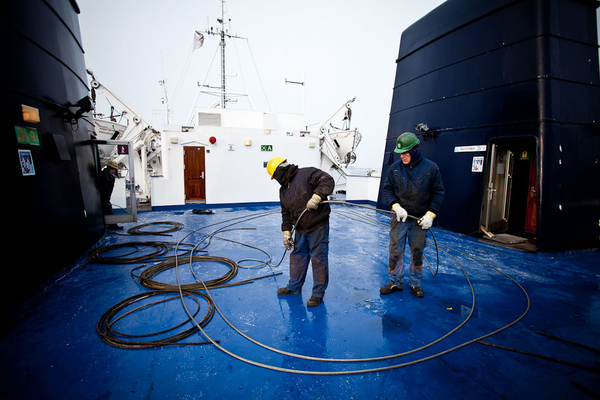Eurofound research examines the different ways in which work is organised across organisations and their potential effects on productivity, efficiency and competitiveness, as well as on working conditions, worker well-being and the sustainability of work over the life course. Research finds that some types of work organisation are associated with a better quality of work and employment. These, more people-centred, forms of work organisation emphasise the value of teamwork, skills use and skills development, as well as employee involvement and autonomy.
Data collection on work organisation
Eurofound monitors developments in work organisation and workplace practices, based on its Europe-wide surveys and on national-level data collection by the Network of Eurofound Correspondents.
Aspects of work organisation are a key element in the European Working Conditions Survey (EWCS), focusing in particular on those aspects of work organisation that are linked with job quality and well-being at work.
Using EWCS data, the European Restructuring Monitor has considered the effects of restructuring on work organisation outcomes such as work intensification, autonomy, access to training, formal work assessment and teamwork.
The European Company Survey (ECS) is the only EU-wide establishment survey that encompasses a wide range of questions about work organisation, skills use and skills development, human resource management, direct employee involvement and social dialogue. Eurofound collaborated with sister agency Cedefop to carry out the ECS 2019, which covers aspects of work organisation, looking at job complexity and autonomy, spanning teamwork and problem-solving, as well as at collaboration and outsourcing.
Impact of digitalisation, new forms of employment and COVID-19
Work organisation has an impact on various aspects of the quality of work and employment, such as physical risk factors, working time, intensity of work, flexibility and satisfaction with working conditions, and also affects establishment performance. Eurofound research therefore looks at changes in the different forms of work organisation, including new methods of organising work resulting from a higher use of digital solutions.
For instance, Eurofound looks into the emerging new forms of employment that are transforming work organisation and work patterns. A collaboration with the International Labour Organization (ILO) has also analysed the impact of new information and communications technologies (ICT) on work and life, examining the increasing use of telework and ICT-based mobile work and what this means for work organisation, working time, health, and well-being, as well as work–life balance.
The COVID-19 pandemic was another important driver of changes in the way work is organised. When discussing ways of organising work after the pandemic, the focus is around hybrid forms of work organisation. Eurofound research looks at the main features of hybrid work, aiming to determine if this form of work reflects an evolution of earlier remote work and telework or a transition to a qualitatively new form of work.
Eurofound’s EU PolicyWatch collates information on the responses of government and social partners to the COVID-19 pandemic, the war in Ukraine and rising inflation, and collects examples of company practices to deal with changes in work organisation. Research using the ECS 2019 and a follow-up edition of the survey that was carried out in 2020 analysed the impact of COVID-19 on workplace practices in companies. Other studies, using information collected though Eurofound’s Network of European Correspondents, documented the measures agreed in two sectors severely disrupted by the crisis – hospitals and civil aviation – such as the adaptation of work organisation to secure greater capacity.
Importance of work organisation for companies and workers
Analysis of ECS data explores the links between innovations in work organisation and the potential benefits for both employees and organisations, such as optimising production processes and improving the overall experience of work. It shows that well-functioning social dialogue and direct employee involvement can also make a valuable contribution to the implementation of innovation in the workplace, creating potential win–win arrangements for workers and their employers.
More recent analysis of the ECS 2019 data examined the link between skills and company performance, and how workplace practices related to work organisation affect this association. This analysis showed that businesses with a culture that values employees are more likely to put workplace practices in place that ensure that employees have the appropriate skills, have the opportunities to use these skills and are motivated to do so, resulting in better establishment performance. These results make a clear business case for applying a people-centred approach to job design and work organisation.

























